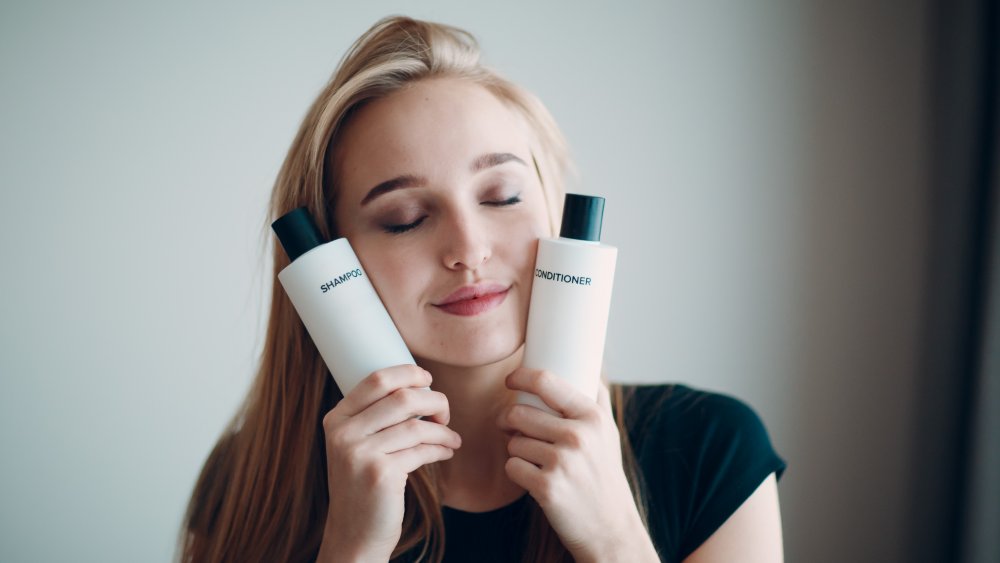Why You Shouldn't Mix Your Shampoo And Conditioner Brands
Sure, shampoo and conditioner go together like... shampoo and conditioner, but do you have to be all matchy-matchy when it comes to the actual brands? If you're splurging on a pricey 'poo, can't you cheap out on the conditioner to save a few bucks? As it turns out, using two different types of shampoo and conditioner usually is not great for your hair. Why? According to Birnur Aral, the beauty lab director of Good Housekeeping, your shampoo and conditioner won't be as effective if you don't stay within the brand and product line. "Shampoos and conditioners are developed and tested for efficacy in pairs, which allows their manufacturers to optimize ingredients for their individual functions," she said in an interview with the magazine.
This is especially true if you have dandruff. A Proctor & Gamble study found that the active ingredient in Head & Shoulders shampoo, pyrithione zinc, was 60 percent less effective when users didn't also use Head & Shoulders conditioner (per Reader's Digest).
Choose a shampoo and conditioner that supports your specific hair needs
One additional benefit of using shampoo and conditioner from the same product line is that if you have a specific hair need — such as dryness or baby-fine strands — you've got two carefully calibrated weapons attacking the problem at once. "The ingredients are designed to support and complement one another — kind of like a twin-set — so no way can you mess up!" noted the AARP blog.
But what if you have more than one concern? (As if frizz were your only hair woe!) If that's the case, you can successfully combine shampoo designed to saves an oily scalp, with a conditioner meant to soothe untamed ends (via Blueshin). You just have to read the labels carefully, looking for a shampoo that addresses your scalp's condition and a conditioner that's based on your desired hair style. If this brand-switching sounds like hair-washing heresy, fear not. Some experts believe product manufacturers may have ulterior motives when they insist it's bad for us to use different brands. "[Brands] sell matching products because, well, they want to sell more product," cosmetic chemist Sally Raffy told Refinery 29. "By recommending that they work well together, they're able to sell an entire line. A lot of it is marketing."

